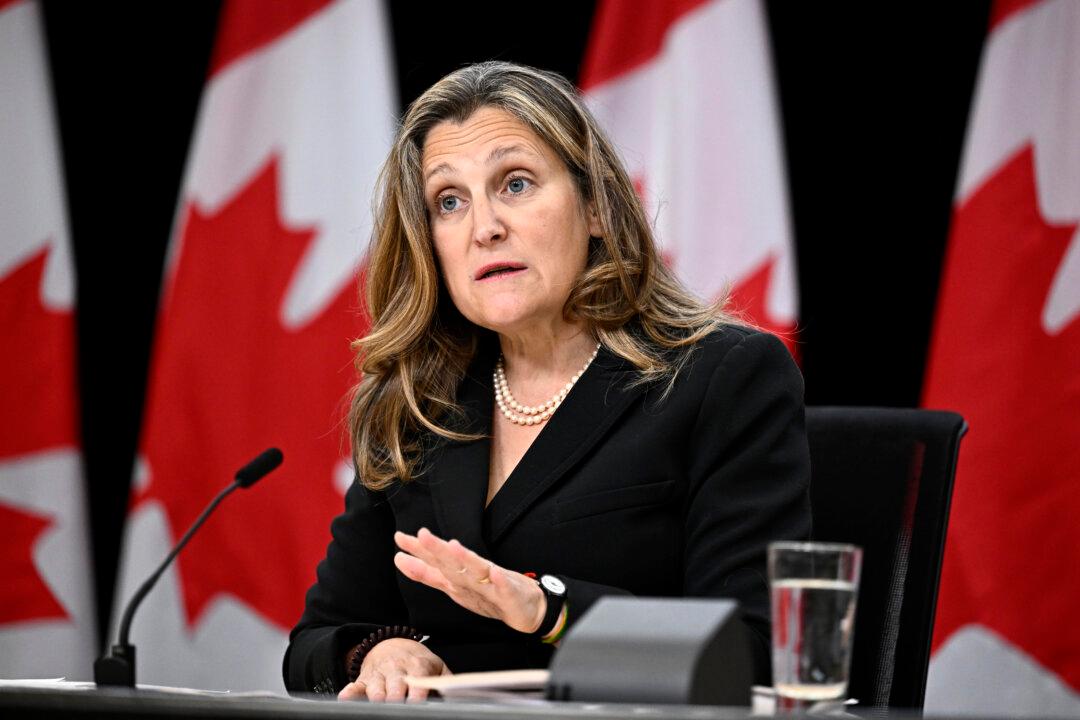Deputy Prime Minister Chrystia Freeland said the revival of the cabinet committee to focus on Canada–United States relations was done in response to the “urgent issue” of Donald Trump’s election victory in the United States.
“The idea is that it will operate in the way that the COVID committee operated, bringing together ministers to address, in a working fashion, an urgent issue,” Freeland told reporters on Nov. 8.





